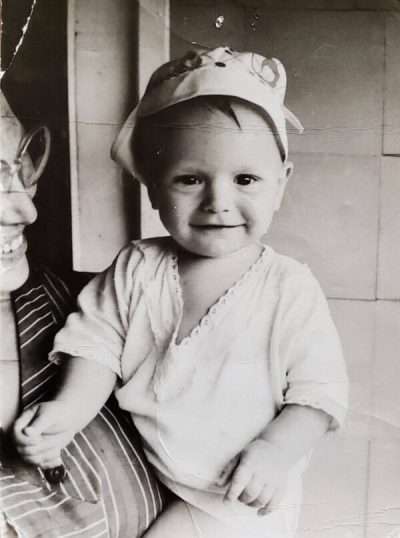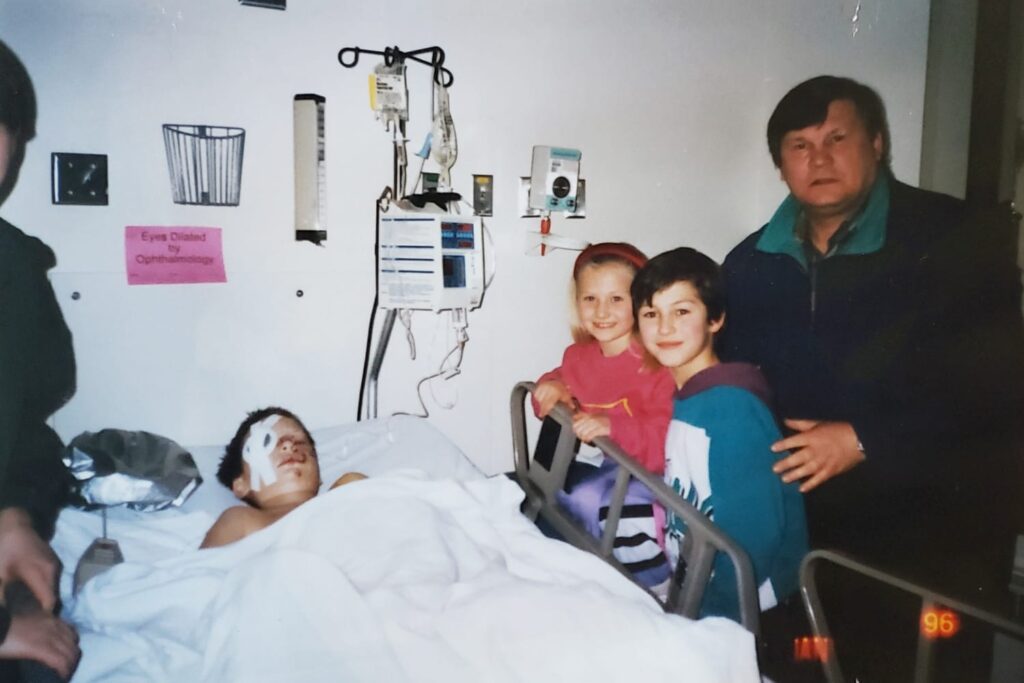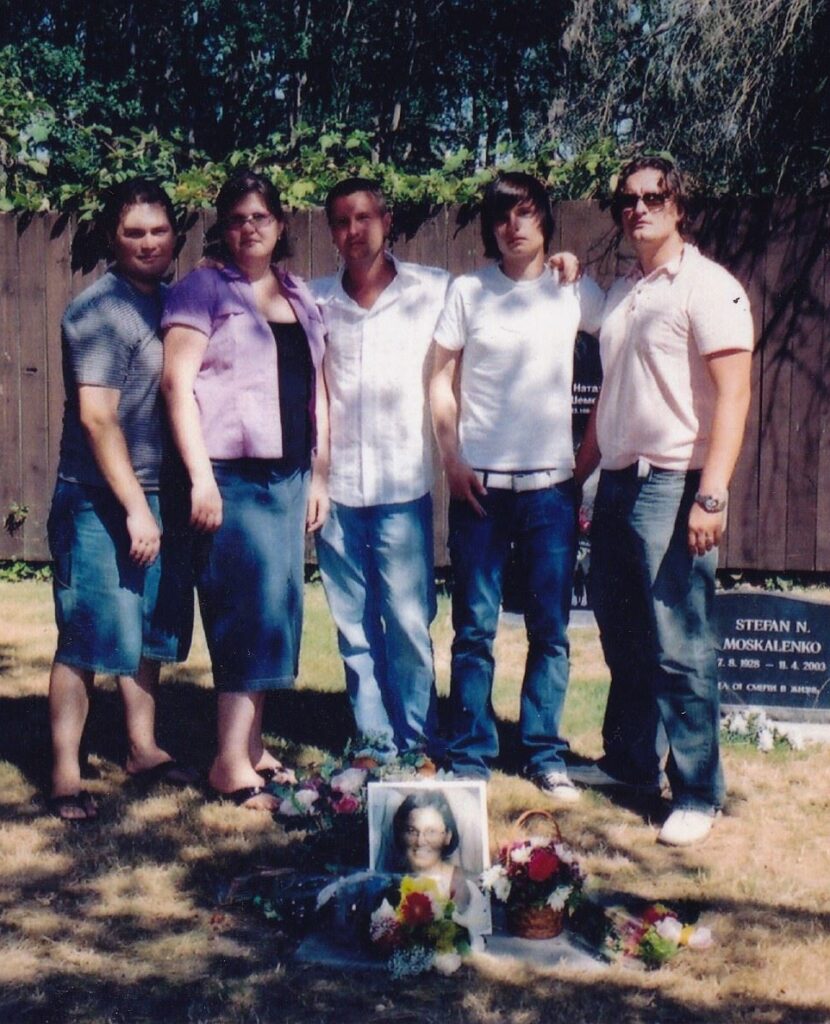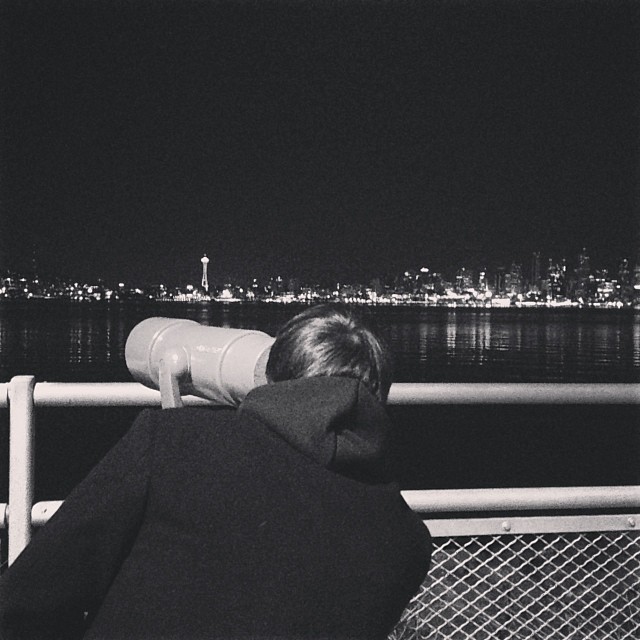My Story
UX Research by way of Soviet Union

New Beginnings
I came to the US in 1990 as the youngest of five kids. After experiencing decades of oppression, my family escaped from the Soviet Union as religious refugees fleeing from a collapsing totalitarian regime. Our family of seven arrived in West Seattle with $700 in our pocket, no English, and without a concrete plan.
Like so many other immigrant children, I benefitted from selfless, hard-working parents who ultimately sacrificed their future to give their kids a chance at a better life. I was fortunate that my father conferred upon me a relentless intellectual curiosity while urging us all to seek higher education. It was thanks to him that I became the first member of my family line to graduate from a university and pursue a graduate education.
Early Trauma
My life was turned upside at age 8 when I lit what turned out to be an m-80 encased in a tennis ball. The explosion rattled our house, significantly lacerated my face, and blew off my left hand. The accident fundamentally changed how I interact with the world and how I perceive objects around me.
I recall how growing up an amputee made me feel disenfranchised from the abled community as I consistently used items that felt like they were designed for others. As far as I was concerned, there were two ways of using something: [1] the way it was ‘meant’ to be used; and [2] the way I had to use it. I have been curious what it is like to interact with reality from the perspective of someone else. Unsurprisingly, this eventually served as the impetus to a deep interest in UX Research…that is, after I figured out what that was.
Unlike many of my Slavic contemporaries, I was precluded from a career in construction or manual labor, which was actually fine by me. I am by nature a quantitatively minded pragmatist so I thought computer science — then an emerging industry — was the coolest thing in the world. By the time I was a pre-teen, I had my mind set on becoming a coder as I exposed myself to HTML and C++.


Staying Focused Through Adversity
My career trajectory took a turn at 15 when my mom passed away from brain cancer and my family began the process of moving from Seattle to Florida. Reeling from the trauma, I tried to figure it all out by saturating myself with psychology and philosophy. An appreciation for the complex, messy human condition swooned me into pivoting from computer science to psychology — something I thought was a little more meaningful. Grappling with my own adversity allowed me to empathize with others’ suffering and inspired me to pursue a career in clinical research psychology.
Starving for more opportunities, I moved out from home back to Seattle where I immediately enrolled myself into college at 16. The struggles of putting myself through college as a teenager codified a sense of grit and tenacity that I’ve taken with me going forward. I eventually graduated cum laude from UW with a B.S. in psychology and began applying to clinical and behavioral neuroscience PhD programs at 19.
UX...the Final Frontier
The clinical research track took me as far as the publication of several academic papers and enrollment in the Clinical Psychology PhD program at Seattle Pacific University. I eventually became disillusioned with the prospect of being a therapist/researcher, however, when it became apparent that my scope of influence would be constrained to a handful of clients and a smattering of academics who would end up reading my papers. Chasing grant funding for the rest of my life just didn’t seem that fun.
After my dad’s brain cancer diagnosis, I took employment breaks as I was back and forth between Washington and Florida. This gave me an opportunity to consider a few career options before I eventually discovered UX research and became enamored with it. UX is the perfect opportunity to marry my natural curiosity, pragmatic nature, and penchant for empathizing with the negative experiences of others. Having finally found my calling, I’m eager to help redefine the way people of all abilities interface with technology.
